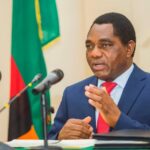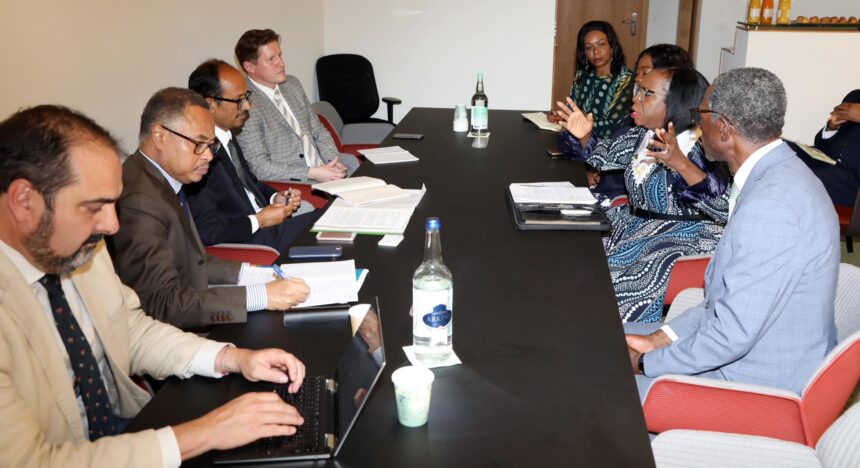Zambia is taking bold steps toward strengthening disaster preparedness by prioritizing the development of a reliable early warning system, particularly in regions that are vulnerable to natural hazards. This strategic focus aims to protect the most at-risk populations—especially women and children—and build national resilience to future crises.
As part of this commitment, the Government of Zambia, represented by Vice President Dr. W.K. Mutale-Nalumango, held a bilateral meeting with Mr. Kamal Kishore, the Special Representative of the United Nations Secretary-General for Disaster Risk Reduction (UNDRR). The meeting focused on Zambia’s ambition to adopt a comprehensive and technology-driven early warning system, with guidance from international partners experienced in disaster risk management.
The Vice President emphasized that effective early warning systems must go beyond technology and include strong community engagement. “We need a system that not only collects and analyzes real-time data but also communicates timely and actionable information to the communities on the ground,” she said.
Drawing on lessons from successful global models, Zambia is exploring best practices such as those used in Switzerland, where local knowledge and resilience-building are integral parts of national disaster preparedness. This approach ensures that citizens are not just passive recipients of information but active participants in planning and response measures.
Switzerland’s model, for example, underscores the value of community involvement, emphasizing that people are more likely to act when they trust the system and understand the risks. Such engagement builds long-term resilience and fosters a culture of preparedness.
Vice President Mutale-Nalumango noted that Zambia is determined to pursue a customized approach that aligns with its specific risk landscape while incorporating proven elements from other countries. This includes the integration of local stakeholders, traditional leaders, and civil society organizations into the national disaster risk reduction framework.
“By prioritizing collaboration with partners such as Switzerland and the UNDRR, Zambia is well-positioned to develop a robust early warning system that serves the needs of all citizens, especially the most vulnerable,” said the Vice President.
The commitment also aligns with Zambia’s broader goals under the Sendai Framework for Disaster Risk Reduction and the Sustainable Development Goals (SDGs), which call for inclusive, proactive measures to reduce disaster impacts.
As the threat of climate-related disasters continues to rise globally, Zambia’s proactive efforts to build a resilient and inclusive disaster preparedness strategy stand as a model for regional cooperation and long-term sustainability.






